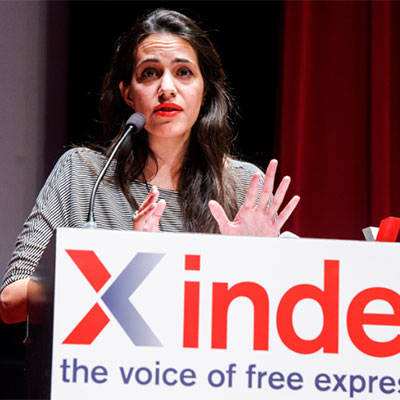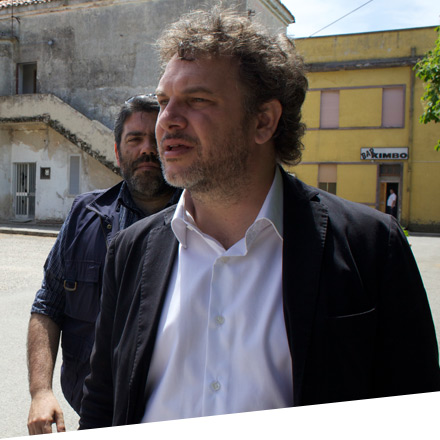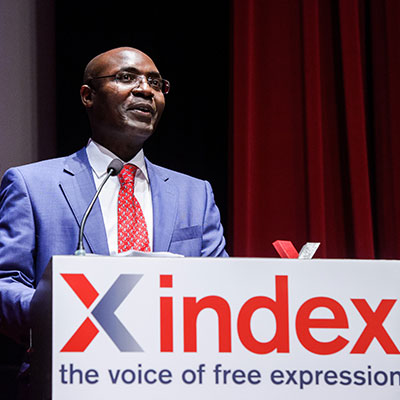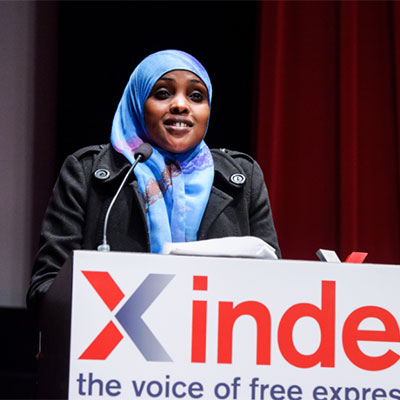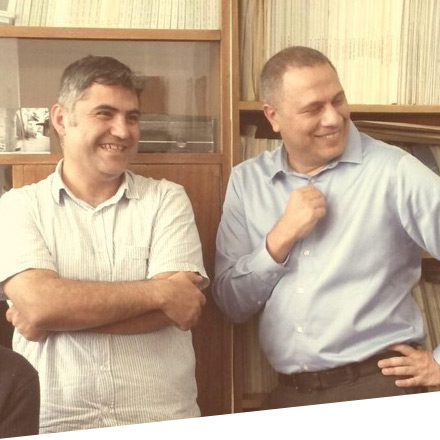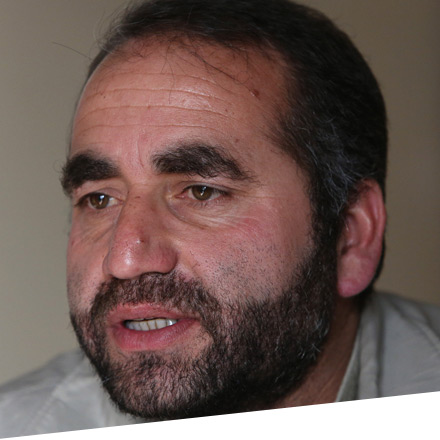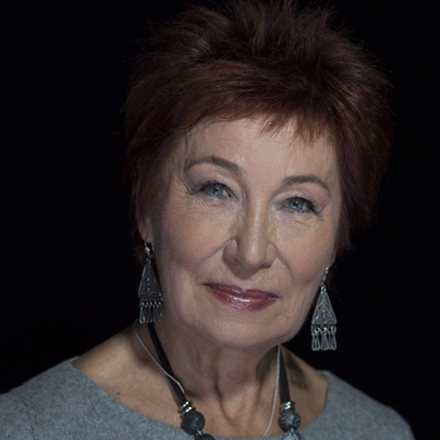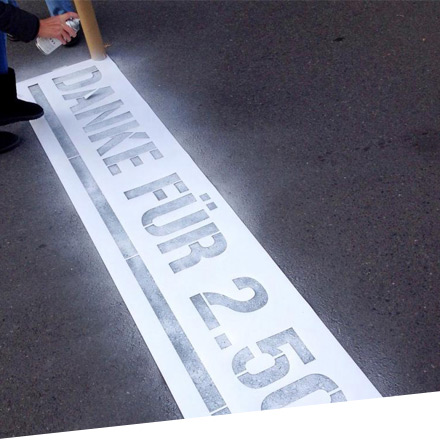21 Jan 2015 | Azerbaijan, Azerbaijan Letters, Campaigns, Germany, Statements
Chancellor Angela Merkel
Bundeskanzleramt
Willy-Brandt-Straße 1
10557 Berlin
Madam Chancellor,
As members of the international NGO coalition ‘Sport for Rights’ we are appealing to you to make human rights a central subject in your meeting next Wednesday, 21 January 2015, with president Ilham Aliyev of Azerbaijan.
In recent years, space for political activity and for civil society and journalism in Azerbaijan has gradually been curtailed, and the last six months in particular have witnessed a severe and unprecedented crackdown, with dozens of civil society activists and journalists serving or awaiting sentencing. The country’s most prominent investigative journalist and a number of leading human rights defenders are in prison, punished for their criticism of government policies. Sham charges such as ‘tax evasion’ are used to justify the criminalization of fundamental rights and freedoms.
The ‘Sport for Rights’ coalition has been established to raise this issue in the context of the forthcoming international sporting events to be hosted by Azerbaijan. Against a backdrop of systematic state-sponsored repression, these events will fail to reflect the spirit in which they were established. The next major sporting event is the Baku European Games, designed and regulated by the European Olympic Committees, scheduled for June 2015. A policy shift by the Azerbaijan towards an open society is urgently required if these Games are to be a success. Human rights defenders and journalists must be released, and we urge you to emphasize this point in your conversations with President Aliyev.
This issue is all the more important given that Azerbaijan is a member of the European community of nations: the country is a member of the Council of Europe (CoE), and part of the EU’s Eastern Partnership Initiative. By ratifying the European Human Rights Convention, Azerbaijan has made a commitment under international law to respect the fundamental freedoms contained therein. CoE officials have repeatedly called attention to Azerbaijan’s failure to uphold these freedoms for its citizens. In his retrospective on 2014, Nils Muiznieks, the CoE Human Rights Commissioner, declared:
One of the most difficult situations I have observed is in Azerbaijan, where the authorities are engaging in a systematic crackdown on human rights defenders, media professionals and civil society partners of the Council of Europe. The number of those in detention there or in exile continues to grow.
President Aliyev may point to token releases that take place from time to time – but please remember that not only are these rare, they are issued only after innocent people have served time in prison, losing months and years of their lives for exercising their basic rights to freedom of expression and association.
Among those unjustly arrested or convicted in 2014 are:
- Anar Mammadli and Bashir Suleymanli, co-founders of the Election Monitoring and Democracy Studies Centre – Mammadli and Suleymanli were arrested on 16 December 2013 and then sentenced to 5.5 and 3.5 years respectively in May 2014, following outspoken criticism of Azerbaijan’s presidential elections in October 2013. On 29 September 2014, Mammadli was awarded the Václav Havel Award for Human Rights by the Parliamentary Assembly of the Council of Europe.
- Leyla Yunus, Director of the Azerbaijan Institute of Peace and Democracy – Yunus was arrested on 30 July2014, and has remained in pre-trial detention since then, despite serious concerns about her health. She was awardedthe 2013 Theodore Hecker Award in Esslingen-am-Neckar “for her self-sacrificing contribution to the protection of human rights and civil freedoms in Azerbaijan.” Her husband Arif Yunus, Head of the Department of Conflict and Migration Institute of Peace and Democracy in Azerbaijan, Ph.D., a historian specializing in conflict studies, was arrested on 6 August 2014.
- Rasul Jafarov, one of the initiators and coordinators of the “Sing for Democracy” (2012) and “Art for Democracy” (2013) campaigns – Jafarov was arrested on 2 August2014 and has remained in detention since. His trial began on 15 January 2015.
- Intigam Aliyev, human rights defender and lawyer – Aliyev was has been in detention since his arrest 8 August 2014. In his capacity as a lawyer he has specialized in defending rights of citizens in the European Court of Human Rights. At the time of his arrest, he was dealing with over 100 cases pending before the Court.
- Khadija Ismayilova, investigative journalist; radio host for Radio Free Europe/Radio LibertyAzerbaijani service; member of the Organized Crime and Corruption Reporting Project – Ismayilova was arrested on 5 December 2014.
We ask you to unequivocally remind Azerbaijan of its obligations under the European Convention on Human Rights. Azerbaijan’s partners should insist that this terrible stainon the country’s human rights record is removed before Baku plays host to the European Games, and that these people be released immediately and unconditionally. Full execution of European Court of Human Rights should also be requested from Azerbaijan in this regard, aiming at amending legislation criminalising human rights defenders in line also with recommendations of the CoE Venice Commission.
We sincerely hope that we can count on your principled leadership on this urgentmatter. We thank you for your attention to the concerns set forth herein.
NGO coalition “Sport for Rights”, including:
- Centre for Civil Liberties (Ukraine)
- Helsinki Foundation for Human Rights (Poland)
- Index on Censorship (Great Britain)
- International Partnership for Human Rights (Belgium)
- Netherlands Helsinki Committee (The Netherlands)
- Norwegian Helsinki Committee (Norway)
- People in Need (Czech Republic)
- Platform (Great Britain)
- Youaid Foundation (Poland)
- A group of civil society activists from Azerbaijan who wish to remain anonymous out
of concern for the security of their family members
15 Jan 2015 | Magazine, Volume 43.04 Winter 2014
[vc_row disable_element=”yes” css=”.vc_custom_1495018452261{margin-right: 0px !important;margin-left: 0px !important;border-bottom-width: 1px !important;padding-top: 15px !important;padding-bottom: 15px !important;border-bottom-color: #455560 !important;border-bottom-style: solid !important;}”][vc_column css=”.vc_custom_1474781640064{margin: 0px !important;padding: 0px !important;}”][vc_column_text css=”.vc_custom_1477669802842{margin-top: 0px !important;margin-right: 0px !important;margin-bottom: 0px !important;margin-left: 0px !important;padding-top: 0px !important;padding-right: 0px !important;padding-bottom: 0px !important;padding-left: 0px !important;}”]CONTRIBUTORS[/vc_column_text][/vc_column][/vc_row][vc_row disable_element=”yes” css=”.vc_custom_1495018460243{margin-top: 0px !important;padding-top: 0px !important;}”][vc_column width=”1/3″ css=”.vc_custom_1474781919494{padding-top: 0px !important;padding-bottom: 0px !important;}”][staff name=”Karim Miské” title=”Novelist” color=”#ee3424″ profile_image=”89017″]Karim Miské is a documentary maker and novelist who lives in Paris. His debut novel is Arab Jazz, which won Grand Prix de Littérature Policière in 2015, a prestigious award for crime fiction in French, and the Prix du Goéland Masqué. He previously directed a three-part historical series for Al-Jazeera entitled Muslims of France. He tweets @karimmiske[/staff][/vc_column][vc_column width=”1/3″ css=”.vc_custom_1474781952845{padding-top: 0px !important;padding-bottom: 0px !important;}”][staff name=”Roger Law” title=”Caricaturist ” color=”#ee3424″ profile_image=”89217″]Roger Law is a caricaturist from the UK, who is most famous for creating the hit TV show Spitting Image, which ran from 1984 until 1996. His work has also appeared in The New York Times, The Observer, The Sunday Times and Der Spiegel. Photo credit: Steve Pyke[/staff][/vc_column][vc_column width=”1/3″ css=”.vc_custom_1474781958364{padding-top: 0px !important;padding-bottom: 0px !important;}”][staff name=”Canan Coşkun” title=”Journalist” color=”#ee3424″ profile_image=”89018″]Canan Coşkun is a legal reporter at Cumhuriyet, one of the main national newspapers in Turkey, which has been repeatedly raided by police and attacked by opponents. She currently faces more than 23 years in prison, charged with defaming Turkishness, the Republic of Turkey and the state’s bodies and institutions in her articles.[/staff][/vc_column][/vc_row][vc_row equal_height=”yes” content_placement=”top” css=”.vc_custom_1474815243644{margin-top: 30px !important;margin-right: 0px !important;margin-bottom: 30px !important;margin-left: 0px !important;}”][vc_column width=”1/2″ css=”.vc_custom_1474619182234{background-color: #455560 !important;}”][vc_column_text el_class=”text_white”]Editorial
“We had tongues, but could not speak. We had feet but could not walk. Now that we have land, we have the strength to speak and walk,” said a group of women quoted in Ritu Menon’s article discussing why ownership of land has started to shift the power balance in India.
[/vc_column_text][/vc_column][vc_column width=”1/4″ css=”.vc_custom_1474720631074{margin-top: 0px !important;margin-bottom: 0px !important;padding-top: 0px !important;padding-right: 0px !important;padding-bottom: 0px !important;padding-left: 0px !important;background-color: #78858d !important;}” el_class=”image-content-grid”][vc_row_inner css=”.vc_custom_1495018553351{margin-top: 0px !important;margin-right: 0px !important;margin-bottom: 0px !important;margin-left: 0px !important;border-top-width: 0px !important;border-right-width: 0px !important;border-bottom-width: 0px !important;border-left-width: 0px !important;padding-top: 65px !important;padding-right: 0px !important;padding-bottom: 65px !important;padding-left: 0px !important;background-image: url(https://www.indexoncensorship.org/wp-content/uploads/2014/12/winter2014-magazine-cover-e1434042891830.jpg?id=62269) !important;background-position: center !important;background-repeat: no-repeat !important;background-size: cover !important;}”][vc_column_inner css=”.vc_custom_1474716958003{margin: 0px !important;border-width: 0px !important;padding: 0px !important;}”][/vc_column_inner][/vc_row_inner][vc_column_text css=”.vc_custom_1495018522192{margin-top: 0px !important;margin-right: 0px !important;margin-bottom: 0px !important;margin-left: 0px !important;padding-top: 20px !important;padding-right: 20px !important;padding-bottom: 20px !important;padding-left: 20px !important;background-color: #78858d !important;}” el_class=”text_white”]Contents
A look at what’s inside the winter 2014 issue[/vc_column_text][/vc_column][vc_column width=”1/4″ css=”.vc_custom_1474720637924{margin-top: 0px !important;margin-bottom: 0px !important;padding-top: 0px !important;padding-right: 0px !important;padding-bottom: 0px !important;padding-left: 0px !important;background-color: #78858d !important;}” el_class=”image-content-grid”][vc_row_inner css=”.vc_custom_1495018679207{margin-top: 0px !important;margin-right: 0px !important;margin-bottom: 0px !important;margin-left: 0px !important;border-top-width: 0px !important;border-right-width: 0px !important;border-bottom-width: 0px !important;border-left-width: 0px !important;padding-top: 65px !important;padding-right: 0px !important;padding-bottom: 65px !important;padding-left: 0px !important;background-image: url(https://www.indexoncensorship.org/wp-content/uploads/2014/12/Gaiman-pic-credit-Kimberly-Butler.jpg?id=62304) !important;background-position: center !important;background-repeat: no-repeat !important;background-size: cover !important;}”][vc_column_inner css=”.vc_custom_1474716958003{margin: 0px !important;border-width: 0px !important;padding: 0px !important;}”][/vc_column_inner][/vc_row_inner][vc_column_text css=”.vc_custom_1495019209534{margin-top: 0px !important;margin-right: 0px !important;margin-bottom: 0px !important;margin-left: 0px !important;padding-top: 20px !important;padding-right: 20px !important;padding-bottom: 20px !important;padding-left: 20px !important;background-color: #78858d !important;}” el_class=”text_white”]Podcast
Neil Gaiman and Martin Rowson on censorship[/vc_column_text][/vc_column][/vc_row][vc_row equal_height=”yes” css=”.vc_custom_1491994247427{margin-top: 0px !important;margin-right: 0px !important;margin-bottom: 0px !important;margin-left: 0px !important;}”][vc_column width=”1/3″ css=”.vc_custom_1493814833226{margin-top: 0px !important;margin-right: 0px !important;margin-bottom: 0px !important;margin-left: 0px !important;border-top-width: 0px !important;border-right-width: 0px !important;border-bottom-width: 0px !important;border-left-width: 0px !important;padding-top: 0px !important;padding-right: 0px !important;padding-bottom: 0px !important;padding-left: 0px !important;background-color: #78858d !important;}”][vc_row_inner css=”.vc_custom_1495018869817{margin-top: 0px !important;margin-right: 0px !important;margin-bottom: 0px !important;margin-left: 0px !important;border-top-width: 0px !important;border-right-width: 0px !important;border-bottom-width: 0px !important;border-left-width: 0px !important;padding-top: 65px !important;padding-right: 0px !important;padding-bottom: 65px !important;padding-left: 0px !important;background-image: url(https://www.indexoncensorship.org/wp-content/uploads/2014/12/15721410208_a036ffe467_o.jpg?id=62585) !important;background-position: center !important;background-repeat: no-repeat !important;background-size: cover !important;}”][vc_column_inner 0=””][/vc_column_inner][/vc_row_inner][vc_column_text css=”.vc_custom_1495018840047{margin-top: 0px !important;margin-right: 0px !important;margin-bottom: 0px !important;margin-left: 0px !important;padding-top: 20px !important;padding-right: 20px !important;padding-bottom: 20px !important;padding-left: 20px !important;background-color: #78858d !important;}” el_class=”text_white”]Information war
Andrei Aliaksandrau investigates the new information war as he travels across Ukraine.[/vc_column_text][/vc_column][vc_column width=”1/3″ css=”.vc_custom_1493815095611{padding-top: 0px !important;padding-right: 0px !important;padding-bottom: 0px !important;padding-left: 0px !important;background-color: #78858d !important;}” el_class=”image-content-grid”][vc_row_inner css=”.vc_custom_1495019050825{margin-top: 0px !important;margin-right: 0px !important;margin-bottom: 0px !important;margin-left: 0px !important;border-top-width: 0px !important;border-right-width: 0px !important;border-bottom-width: 0px !important;border-left-width: 0px !important;padding-top: 65px !important;padding-right: 0px !important;padding-bottom: 65px !important;padding-left: 0px !important;background-image: url(https://www.indexoncensorship.org/wp-content/uploads/2014/12/magna-carta.jpg?id=62653) !important;background-position: center !important;background-repeat: no-repeat !important;background-size: cover !important;}”][vc_column_inner 0=””][/vc_column_inner][/vc_row_inner][vc_column_text css=”.vc_custom_1495019017760{margin-top: 0px !important;margin-right: 0px !important;margin-bottom: 0px !important;margin-left: 0px !important;padding-top: 20px !important;padding-right: 20px !important;padding-bottom: 20px !important;padding-left: 20px !important;background-color: #78858d !important;}” el_class=”text_white”]1215 and all that
John Crace on the Magna Carta: Don’t shit with the people, or the people shit with you. Or something like that.[/vc_column_text][/vc_column][vc_column width=”1/3″ css=”.vc_custom_1493815155369{padding-top: 0px !important;padding-right: 0px !important;padding-bottom: 0px !important;padding-left: 0px !important;background-color: #78858d !important;}” el_class=”image-content-grid”][vc_row_inner css=”.vc_custom_1495019157426{margin-top: 0px !important;margin-right: 0px !important;margin-bottom: 0px !important;margin-left: 0px !important;border-top-width: 0px !important;border-right-width: 0px !important;border-bottom-width: 0px !important;border-left-width: 0px !important;padding-top: 65px !important;padding-right: 0px !important;padding-bottom: 65px !important;padding-left: 0px !important;background-image: url(https://www.indexoncensorship.org/wp-content/uploads/2016/01/20160127-_MG_4305.jpg?id=72965) !important;background-position: center !important;background-repeat: no-repeat !important;background-size: cover !important;}”][vc_column_inner 0=””][/vc_column_inner][/vc_row_inner][vc_column_text css=”.vc_custom_1495019127591{margin-top: 0px !important;margin-right: 0px !important;margin-bottom: 0px !important;margin-left: 0px !important;padding-top: 20px !important;padding-right: 20px !important;padding-bottom: 20px !important;padding-left: 20px !important;background-color: #78858d !important;}” el_class=”text_white”]Thoughts policed
Max Wind-Cowie on free speech in politics
[/vc_column_text][/vc_column][/vc_row][vc_row][vc_column width=”1/2″][vc_single_image image=”90659″ img_size=”full” onclick=”custom_link” link=”https://shop.exacteditions.com/gb/index-on-censorship”][/vc_column][vc_column width=”1/2″][vc_column_text]
Subscribe to Index on Censorship magazine on your Apple, Android or desktop device for just £17.99 a year. You’ll get access to the latest thought-provoking and award-winning issues of the magazine PLUS ten years of archived issues, including Drafting freedom to last.
Subscribe now.
[/vc_column_text][/vc_column][/vc_row]
